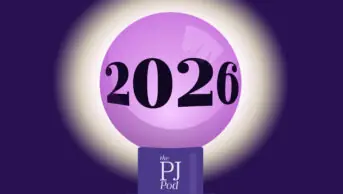
Shutterstock.com
Pharmacists of a minority ethnic background are less likely to be promoted than their white colleagues, indicate data from The Pharmaceutical Journal‘s 2022 salary and job satisfaction survey.
The survey data show that overall three-quarters of the 1,395 UK pharmacists (77%) who participated in the survey said they had been promoted at least once during their career.
However, this proportion was higher for white pharmacists at 81%, and lower for all other ethnic minority groups.
Among South Asian pharmacists, just 58% said they had been promoted. Among pharmacists of Chinese ethnicity, 59% reported at least one promotion. Of respondents who were black, 52% had been promoted.
A small average age difference observed across ethnicities may explain some of these differences; the average age of white respondents was 45 years, and across all other ethnicities, taken as a whole, it was 39 years.
However, findings align with data from the hospital pharmacy sector, exclusively reported by The Pharmaceutical Journal in February 2022. The data show that, of 87 NHS trusts and health boards who responded to a freedom of information request with usable figures, more than a third (35%) said they did not employ any pharmacists from ethnic minority backgrounds at band 8b or above.
The Pharmaceutical Journal’s annual salary and job satisfaction survey has shown a statistically significant ethnicity pay gap in favour of white pharmacists over a number of years.
Commenting on the The Pharmaceutical Journal‘s survey findings, Amandeep Doll, head of professional belonging at the Royal Pharmaceutical Society, said: “There’s a clear need to ensure individuals from minority ethnic groups have a fair and equitable opportunity to progress and thrive, and to ensure senior leadership teams represent the diversity of the profession.
“Employers need to ensure development opportunities are fairly offered to all team members, regardless of their background, and their recruitment and retention practices are fair and equitable.
“Individuals need to feel empowered to apply for promotional roles and know they will have a fair chance in the recruitment process.”
Elsy Gomez Campos, president of the UK Black Pharmacists’ Association and the Pharmacists’ Defence Association (PDA) BAME Pharmacists’ Network, said: “I am not surprised by the results, because as long as we do not make our professional priority to overhaul the recruitment process, we will continue to see similar outcomes year after year.
“Recruitment, retention and development of the best candidates will result in a more diverse outcome, particularly in leadership positions. But, to achieve such results, we need first to admit that, in general, the recruitment process is biased and then we need to put systems in place to correct it. This is an area of the profession that requires courageous and authentic leadership.”
Paul Day, director of the PDA, said: “Larger employers should be asking these questions of themselves and analysing their entire employee database to identify potential differences between groups of different protected characteristics, then seeking to understand why such factors exists and taking action to remove any structural bias.”
What does the survey show?
Have you been promoted at least once since you started work as a pharmacist? (n=1,395)
- Yes = 1,068 (77%)
- No = 327 (23%)
Of respondents who specified their ethnicity (n=1,364), the following proportions answered ‘yes’ to the above question:
- Black (African/Caribbean/black other) = 52% (34)
- Chinese = 59% (35)
- South Asian (Indian, Pakistani, Bangladeshi) = 58% (118)
- White = 81% (771)
There was a small average age difference observed across ethnic groups; the average age of white respondents was 45 years, and across all other ethnicities, taken as a whole, it was 39 years.
The Pharmaceutical Journal‘s annual salary and job satisfaction survey ran from 7–22 July 2022, and 1,655 pharmacists responded to at least some of the questions.
Most respondents — 633, with 163 of these being locums — were based in community pharmacy, with 487 (of which 28 were locums) in hospital.


